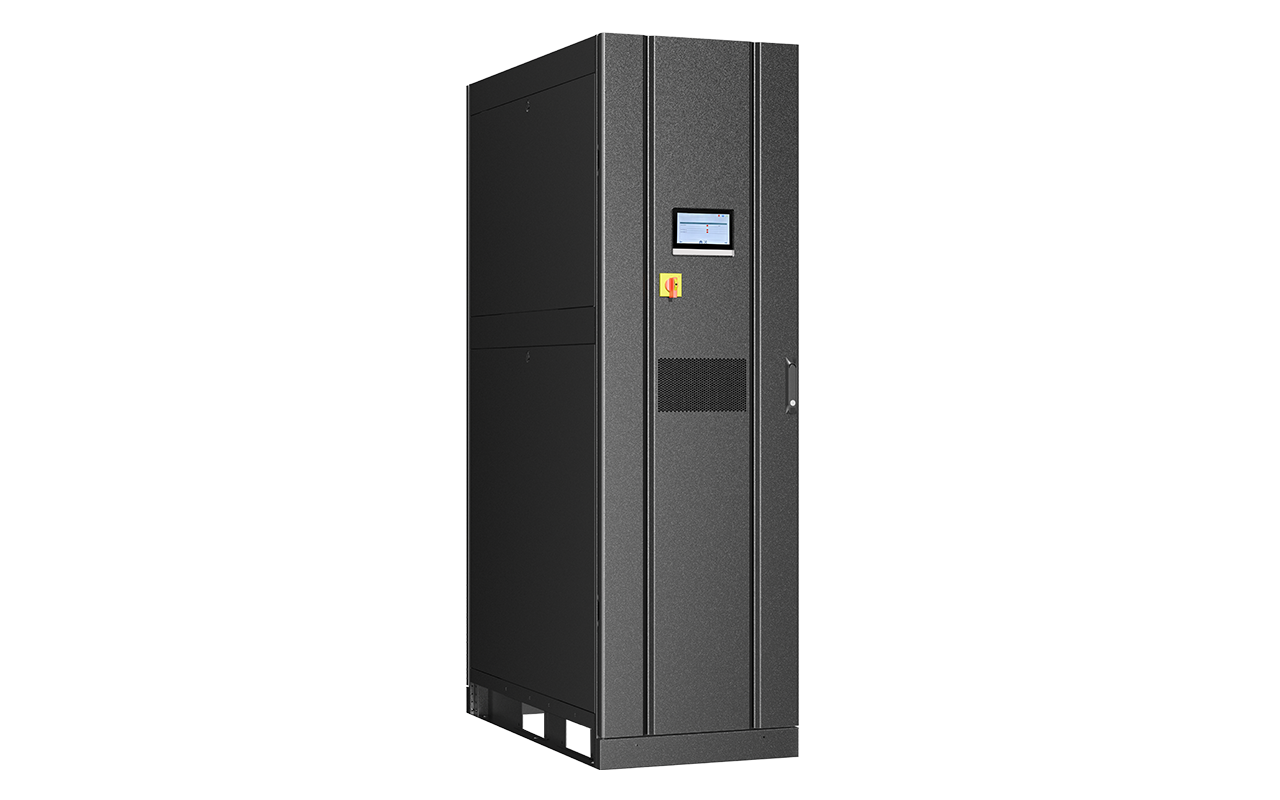BLOG
New AI Green Bytes data center in Paris, France, will use Oleon's plant-based immersion cooling fluid
AI cloud company AI Green Bytes is building an immersion-cooled data center in Paris, France, which will utilize plant-based cooling fluid developed by Oleon.
By submerging its servers in Oleon’s coolant, known as Qloe, AI Green Bytes claims it can cut energy use by up to 90 percent when compared to air-cooled systems.
Due to open in June 2025, the data center will be AI Green Bytes’ first immersion-cooled facility. Each tank will be capable of cooling up to 361kW of IT equipment, and the company says these can host GPUs from Nvidia and AMD that it will rent to its customers.
The overall capacity of the facility has not been shared. DCD has contacted the company for further details. AI Green Bytes has previously touted its AI Green Qube data center design, a 400 sqm (4,305 sq ft) prefabricated facility capable of running 3,500 GPUs, but it is unclear if the Paris project is based on this design.
Oleon is a subsidiary of Avril, a French firm specializing in the development of green chemicals. It launched Qloe earlier this month, which it says is fully biodegradable and non-toxic, while offering high-performance cooling to data center operators.
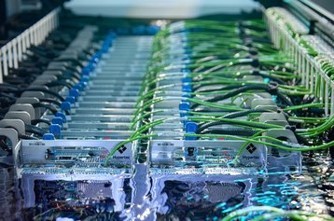
CoolIT claims liquid cooling performance breakthrough with 2MW CDU
Cooling technology firm CoolIT has claimed a breakthrough in row-based coolant distribution unit (CDU) performance with a new 2MW product.
The CHx2000 offers 2MW liquid cooling capacity, supporting cooling for up to twelve 120kW Nvidia GB200 NVL72 racks. It does this within a CDU footprint of 750x1200mm.
Canadian vendor CoolIT says the new CDU provides 66 percent greater cooling capacity than its previous leading product, the CHx1500. It claims benchmarking shows the unit offers a 2x cooling capacity bump on the next best '1350' CDU on the market, as well as 53 psi secondary head pressure it says is 'unmatched' in other products.
Founded in 2001, CoolIT designs, engineers, and manufactures advanced liquid cooling solutions for the data center and desktop markets, including its split-flow direct liquid cooling technology. The company was acquired by KKR and Mubadala in 2023.
The company has been experimenting with advanced cooling technologies, and in March debuted a new prototype 4MW liquid cooling coldplate it claims can cool chips more than three times more powerful than the current generation of Nvidia GPUs.
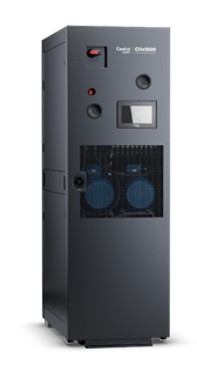
NTT deploys reverse osmosis system to save water in UK data center
NTT Global Data Centers (NTT GDC) has used a water purification process known as reverse osmosis at one of its data centers to reduce the amount of water used in the facility’s cooling system.
NTT GDC has released the company’s first sustainability report, detailing some of its sustainability efforts and providing insights into the efficiency of its facilities. In the report, the company detailed a new effort to reduce water consumption at one of its UK sites.
Across 2022, NTT’s Hemel Hempstead 3 data center 1 in the UK used more than 80,000 cubic meters of water in indirect evaporative cooling units (IDECs).
The company said this saved 35,000 cubic meters in annual water usage, leading to $100,000 in annual financial savings.
In a recently released video on the project, Steve Campbell-Ferguson, global lead for design, NTT Global Data Centers, said the campus uses cooling towers rather than chillers for its cooling, evaporating water to remove heat.
NTT’s data center emissions go down
Between 2022 and 2023, NTT GDC’s total energy consumption increased from 3,260GWh to 3,500GWh. Around 40 percent of the company’s total use was attributed to renewable energy sources.
The average 12-month rolling PUE for NTT’s data centers improved from 1.4 to 1.38.
NTT also said it aims to research and deploy non-refrigerant cooling solutions and alternative backup solutions for its data centers.
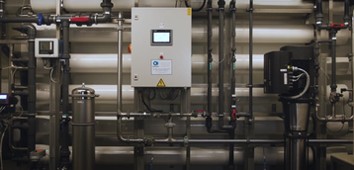
Sabey to bring additional capacity online at two Washington campuses
Sabey Data Centers is expanding its campuses in Washington and bringing new capacity online later this year.
In Seattle, 6MW of Tier III-standard critical power will come online by December 1, 2025.
At its Columbia campus in East Wenatchee, Washington, 5.5MW of Tier III-standard critical power will be available starting November 1, 2025. Sabey said the site has further room to grow, with 9MW coming online at the end of 2026 and another 9MW scheduled for the beginning of 2028.
A joint venture between Sabey Corporation and National Real Estate Advisors, Sabey Data Centers operates more than 4 million sq ft of data centers across the US, with six data center sites across the US in Quincy, Seattle, and East Wenatchee, Washington; New York City; Austin, Texas; and Ashburn, Virginia.
Formerly known as Intergate.East, Sabey’s Seattle campus totals 54MW across 1.2 million sq ft across multiple buildings along S 120th Place in Tukwila. Originally developed by Sabey for (and then purchased by) Boeing around 1990, Sabey re-acquired the six-building campus in 1999. On its website, Sabey said 6MW of liquid cooling-ready capacity is scheduled to come online in late 2025.
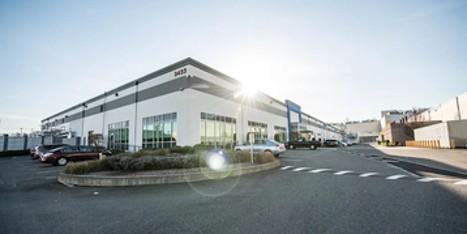
PDG launches Tokyo data center campus in Japan
Princeton Digital Group (PDG) has launched the first phase of its first Japanese data center campus in Tokyo.
The APAC-focused operator this week announced the official launch of the first phase of the 96MW TY1 campus in Saitama City. The first phase sees the launch of a six-story facility spanning 60,000 sqm (650,000 sq ft) and offering 48MW of IT capacity.
The $1 billion development, located approximately 35 kilometers from central Tokyo, delivers 140kW per rack via liquid cooling to support AI workloads, with a PUE of below 1.34.
PDG said that existing facilities in central and eastern Tokyo face “significant constraints” around energy and capacity, while Saitama is well-positioned due to the availability of power and land, with strong connectivity to existing clusters.
PDG was set up with the help of Warburg Pincus in 2017 and operates data centers in China, Singapore, India, Indonesia, Malaysia, and Japan. Mubadala is also an investor.
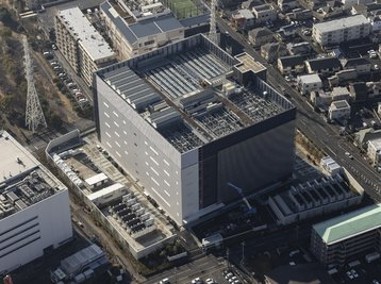
Khazna breaks ground on two data centers in Abu Dhabi
Khazna has broken ground on two new data centers in the UAE.
The two facilities will be located in Mafraq and Masdar City, providing a combined 60MW of capacity.
It is expected the data centers – AUH4 in Mafraq and AUH8 in Masdar City – will be completed in late December 2026 and August 2026, respectively.
The two data centers will use a modular design architecture, which is intended to improve efficiency during the build phase, and will use adiabatic free cooling.
The company is backed by G42, and in April 2025 secured additional funding from MGX and Silver Lake, with the investment firms becoming minority shareholders in the business. It currently operates 30 data centers across the UAE and is also developing a facility in Egypt.
This data center will have 100MW of IT capacity and use liquid cooling. The company said the steel structures are now complete, and the initial project phase is due for completion in December 2026.

Wafr Technologies launches, targets Canadian data center market
A new data center firm has launched in Canada that claims to offer a proprietary liquid cooling system.
Darrell Kopke, executive director at startup seed program Creative Destruction Lab Vancouver, this week announced the launch of Wafr Technologies Ltd., a new AI data center infrastructure venture he has co-founded.
The Vancouver-based company [not to be confused with investment firm Wafra Inc.] aims to develop a “network of boutique, net‑zero AI data centers” utilizing its proprietary cooling solution to retrofit existing halls before expanding into new-build GPU farms cooled by its patent‑pending closed-loop liquid‑cooling technology.
The company said its SuperPODs use a proprietary passive cooling system through PCM – possibly phase-change materials – that can pair with immersion, direct-to-chip, or air-to-liquid cooling. The company said its heat exchangers eliminate the need for chillers and refrigerants.
Sing was previously CEO and founder of Canadian solar firm Canadian Photovoltaic Cell Corp, and a VP at Solar Earth Technologies before that.

Chillmine, Energywise to develop solar powered data centers in Zimbabwe
Seattle-based cloud computing company Chillmine has signed a memorandum of understanding with Zimbabwean independent power producer (IPP) Energywise to develop solar-powered data centers across the country.
The companies intend to utilize power from Energywise’s planned 100MW Runde River Solar Park in Zvishavane, in the south of the country, to power the facilities. Construction timelines on the project are not available.
The Chillmine-developed data centers are expected to support AI Infrastructure-as-a-Service and cryptomining hosting. Chillmine has indicated that it plans to deploy liquid cooling at the sites to support its sustainability credentials.
Energywise has operated in Zimbabwe for some time and is one of ten IPPs approved by the Zimbabwe Energy Regulatory Authority. In addition to the Runde River project, the company has three other projects in development, two of which have a planned capacity of 30MW, and the other with a planned capacity of 5MW.

Leave A Reply
LOGO
This stunning beach house property is a true oasis, nestled in a serene coastal community with direct access to the beach.
Opening Hours
Monday - Friday : 9AM to 5PM
Sunday: Closed
Closed during holidays
Contact
+18888888888
hezuo@eyingbao.com123 West Street, Melbourne Victoria 3000 Australia



